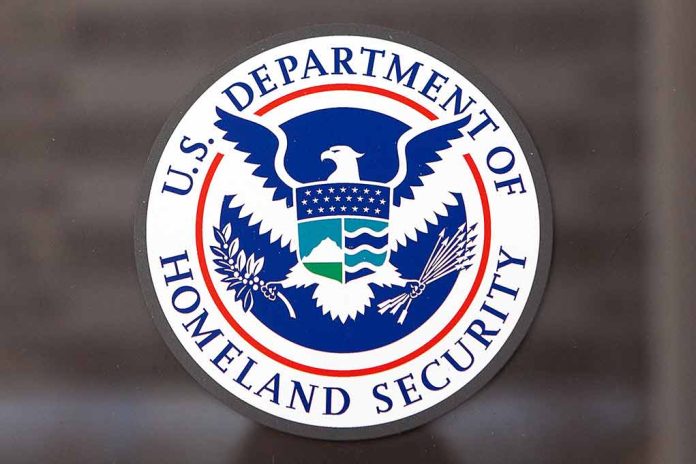
The Supreme Court’s recent unanimous ruling reaffirms the Department of Homeland Security’s power to revoke visas for fraudulent marriages, blurring the lines for immigrants seeking permanent legal status.
At a Glance
- The Supreme Court decided that DHS can revoke visas for fraudulent marriages without judicial review.
- Justice Ketanji Brown Jackson wrote that DHS’ discretion limits judicial intervention.
- The case involved a marriage between Amina Bouarfa and her foreign-born spouse.
- Critics argue the ruling reduces accountability in immigration decisions.
Supreme Court Grants DHS Power
On Tuesday, the Supreme Court ruled unanimously that the Department of Homeland Security (DHS) retains expansive authority to revoke visas based on cases of fraudulent marriages. Justice Ketanji Brown Jackson wrote the opinion supporting Congress’s intent to afford the secretary of Homeland Security significant leeway. This decision limits judicial intervention in such immigration cases.
The Supreme Court unanimously ruled that the Department of Homeland Security has full discretion to revoke immigration visas without review by a judge.
Devin Dwyer has more. pic.twitter.com/oDnn5d52fG
— ABC News Live (@ABCNewsLive) December 11, 2024
The case involved U.S. citizen Amina Bouarfa, who had petitioned for her spouse, Ala’a Hamayel, a Palestinian citizen. Though initially approved, the U.S. Citizenship and Immigration Services later revoked Mr. Hamayel’s visa. Their decision cited evidence pointing to a prior sham marriage by Mr. Hamayel.
Authority to Revoke Remaining Unchecked
The decision rests on federal law limiting court oversight of discretionary decisions by immigration agencies. Because these decisions, such as DHS’s recent actions, are considered discretionary, the courts lack jurisdiction to review them. Federal courts uphold the dismissal of disputes regarding revocations, reinforcing the power vested in DHS.
Amina Bouarfa’s argument cited arbitrariness in the visa revocation. Nevertheless, the 11th Circuit upheld the decision, and the Supreme Court action resolved disagreements among lower courts. Homeland Security Secretary’s decisions remain unchecked, with further implications for immigrants pursuing permanent legal status.
Potential Implications and Future Actions
Though DHS’s discretionary power shields its decisions from review, Justice Jackson noted that petitioners hold alternative options. “In any event, when the Secretary opts to revoke a petition that he determines should not have been approved in the first place, the petitioner is not out of options.” Ms. Bouarfa can file a new application for her husband. If denied, she may challenge that decision through the courts.
Opponents claim the ruling creates a restrictive legal environment with minimal accountability for immigration agencies, arguing it offers immigration authorities almost unchecked power. However, proponents see it as a necessary step to ensure the integrity and transparency of the visa application process.
Sources:
- DHS Has Power to Revoke Sham Marriages Supreme Court Rules
- Supreme Court Rules Courts Don’t Have Power in Some Immigration Cases
- High Court Bars Judicial Review Of Revoked Visa Petitions










